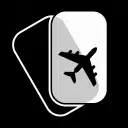Cost Benefit Analysis Of Jet Charter Travel
During an important meeting with executives of your firm, you learn that some potentially large clients or investors want to set up a meeting with your company. The client has agreed to meet with you in your offices and is expecting you to make all of the arrangements for their travel. A good impression is meaningful and lasting. To ensure that the face-to-face meeting strengthens the relationship between the two companies, the idea of chartering a private jet has been tossed around. How do you decide that this circumstance warrants private jet charter over the purchase of first class airline tickets?
First, let’s look at the benefits of chartering a private jet opposed to purchasing first class tickets for your clients. The experience of flying on a private jet is relaxing yet exciting and will likely put your client in a good mood when he or she arrives for the meeting. Another benefit of a charter flight is that it is arranged around the client’s schedule, and eliminates delayed and or canceled flights. A private jet allows your client to avoid long security lines. Private jets also allow access to smaller private airports that are often times located much nearer to the place at which they intend to meet. On a private jet charter, clients can depart the same day and arrive home in time to beat the traffic. If impressions are truly meaningful and lasting, then chartering a private jet will send a clear message that your client is important to the firm.
The luxury and convenience of private jet charter travel comes with cost. When comparing the actual dollar cost of a private jet charter and a first class airline ticket, the airlines win hands down. The cost of chartering a private jet can easily be four times that of an airline ticket in the first class section. The value of jet charter travel is found in its convenience, not its price tag. For a small firm that is hoping to land a big client; chartering a private jet may come at great expense. But losing the opportunity to meet with an important client face-to-face due to airline delays or canceled flights could cost the company far more.
Are you ready to book your Austin and Houston charter flight yet?
Our friendly, expert air charter agents are here to answer questions or start your quote today. Don`t wait, call now and we'll get you on your way to your destination!
Call 888-593-9066










